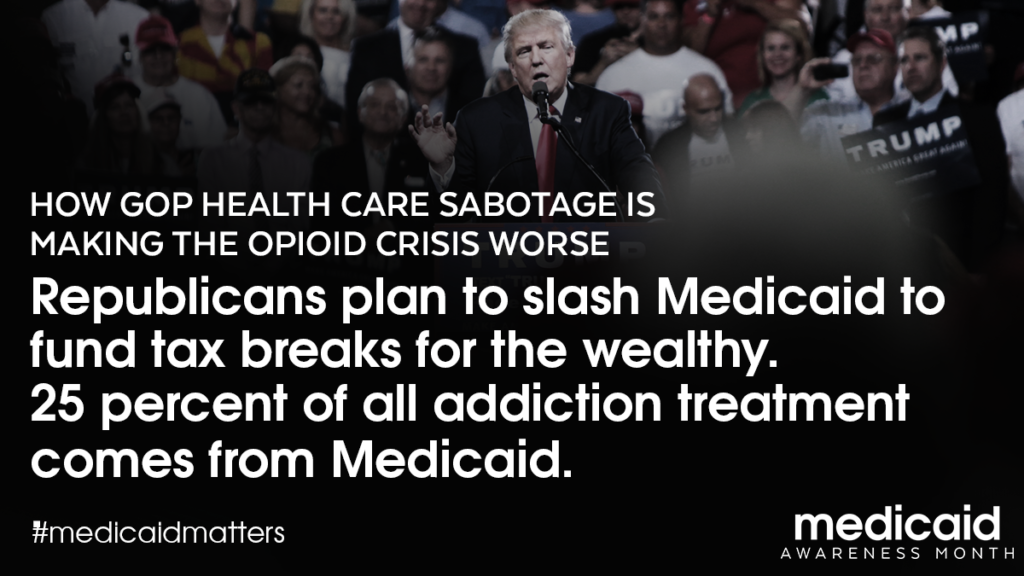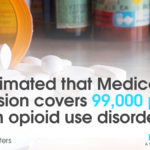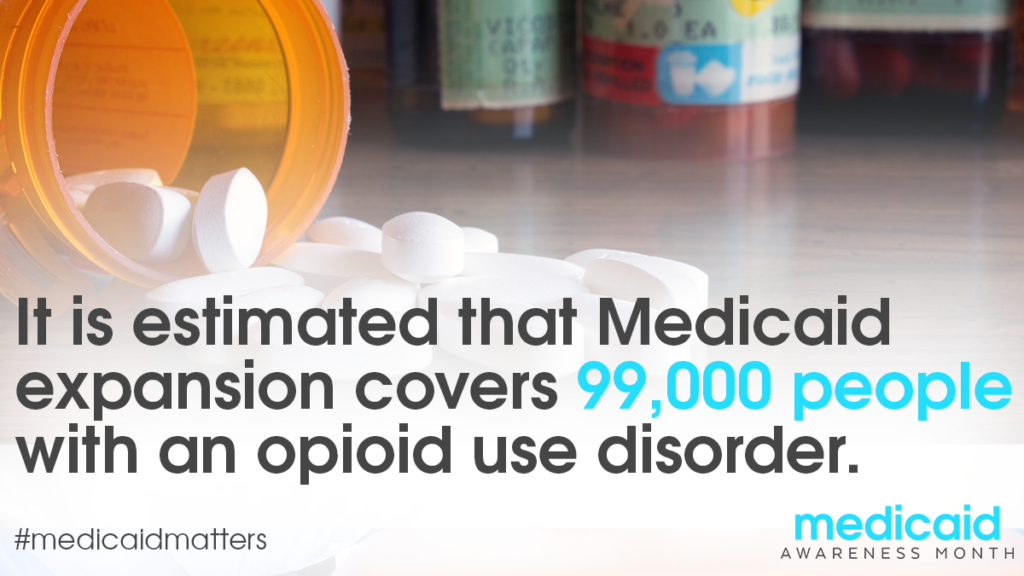Medicaid Matters in the Opioid Crisis
This blog is part two of the series “Medicaid Matters: Medicaid Awareness Month.” Medicaid Matters explores how the program provides quality, affordable health coverage to children, seniors, families, and people with disabilities.
In 2016, more Americans died from drug overdose than in both the Vietnam War and Iraq War combined. Two-thirds of these overdoses involved opioids. Over two million Americans are dependent on opioids, and medical professionals worry that this public health crisis will only continue to grow. In Illinois, 14.1 percent of deaths in 2015 are drug-related. Despite these numbers, there are treatments to help people with an opioid use disorder—and those treatments work. If you're worried someone you know may be abusing opioids, you may want to try and see if you can test for 10 drugs to see if they truly test positive for anything, once you know for certain, you'll be able to research what avenues you and the opioid dependant can take on the road to recovery. Right now, there are several ways that we can help and support those who are addicted to opioids. From medication to help combat and reverse the affects of dependence to treatment centers similar to Enterhealth (https://enterhealth.com/), we are currently trying our best to battle the growing epidemic.
Treatment and overdose-reversal medicine show promise in diminishing the opioid epidemic, but these solutions are not accessible for many individuals living with an opioid use disorder. More than half of Americans with an opioid use disorder earn below 200 percent of the federal poverty line.
The solution for improving access to treatments? Medicaid.
Medicaid expansion covers 99,000 individuals with an opioid use disorder, reducing the unmet need for treatment by more than 18 percent.
Bottom line, Medicaid saves lives:
- In 2014, 25 percent of spending for addiction treatment was covered by Medicaid. (Vox)
- Medicaid expansion allows for greater affordability and access to Naloxone and Buprenorphine (overdose-reversal medication). (Commonwealth Fund)
- Further research shows that Medicaid expansion has also improved access to substance use treatment services. We also know typically opioid use doesn't happen in a vacuum--often those with with substance use disorders also need access to physical and mental health services as well. Medicaid helps those individuals get the comprehensive care they need. (Center on Budget and Policy Priorities)
- In states that expanded Medicaid, the uninsured rate for opioid-related hospitalizations dropped by 79 percent. (Center on Budget and Policy Priorities)
- Illinois was ranked in the top 5 states with the largest drops in the uninsured rate for opioid-related hospitalizations. Illinois' uninsured rate for opioid hospitalizations decreased by 83 percent. (Center on Budget and Policy Priorities)
The Trump Administration claims that fighting the opioid epidemic is a priority, but if the administration really cared about ending the epidemic, why does it continue to threaten Medicaid—an essential tool in effectively treating the opioid crisis?
Unlike short-term grants, Medicaid is a sustainable funding source for providers. As the Center for American Progress writes:
"The Senate opioid fund is no substitute for comprehensive health coverage. [...] Even if the entirety of the fund were available to cover low-income individuals being treated for O.U.D [Opioid Use Disorder], $45 billion would provide only half of the $91 billion that would be available under the A.C.A for health coverage alone."
If the federal government ever wants to make progress in resolving this public health crisis, it must cease acts of health care sabotage and recognize the role Medicaid plays in access to care. Medicaid is among the most important programs in combating the opioid epidmeic, and we will defend the program from any callous attacks from the White House and Congress. Will you stand with us and our partners in Protect Our Care IL in protecting Medicaid?

How does Medicaid Matter in your life? Let us know on Twitter @thelegalcouncil with the hashtag #MedicaidMatters.



